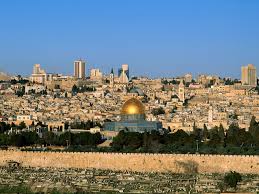
Opportunities for Assistance:
Make a Difference in Jerusalem
Your support will help create a brighter future for Ethiopian-Israelis in Jerusalem!
The Challenge
Challenges in the Holy City: High Costs, Racism and Educational Underachievement
Jerusalem is located in the Judean mountains in the middle of the country. Bordering the West Bank, Jerusalem is the city of readers: on average, 68% of the population reads one book per month, and 33% of the population reads three books per month.
Being the capital and biggest city in population and area of Israel, Jerusalem counts 796,200 inhabitants. The Ethiopian-Israeli community makes up 5,067 of the population. These Ethiopian-Israelis living in Jerusalem were either born in Ethiopia or have at least one parent from Ethiopia. 658 Ethiopian-Israelis in Jerusalem are between 13 and 18 years old.
Many Ethiopian-Israelis that live in Jerusalem still struggle with economic, educational and racial challenges:
• Although living in Jerusalem was a big dream for so many Ethiopians that came to Israel, it only came true for a small number of them. Nowadays, only 0.6% of Jerusalem’s population is composed of Ethiopian-Israelis. This is very low due to the fact that the living costs in Jerusalem are too high for many Ethiopian families.
• In January 2012, thousands of Ethiopian-Israelis protested against the racism that they experience by blocking a road in Jerusalem.
• It was reported nationwide that Ethiopian-Israelis have lower educational achievement rates in comparison with their non-Ethiopian peers.